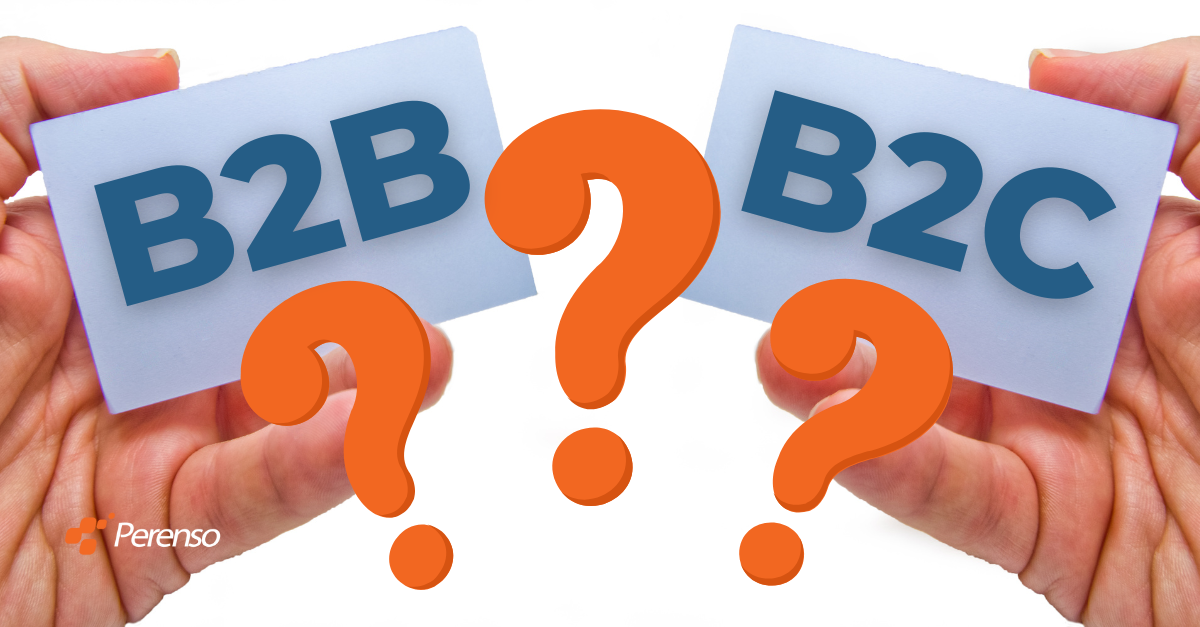Discover the key strategies to excel in B2B ecommerce as a distributor.
Understanding B2B Ecommerce: The Basics
B2B ecommerce, or business-to-business ecommerce, refers to the buying and selling of goods and services between businesses through online platforms. It involves transactions between manufacturers, wholesalers, and distributors, enabling them to streamline their supply chain processes and reach a wider customer base.
To understand B2B ecommerce, it's important to grasp the fundamental concepts and processes that drive it. This includes understanding the roles of different entities involved, such as distributors who play a crucial role in connecting manufacturers with retailers or end consumers. Additionally, understanding the technology and infrastructure required to support B2B ecommerce is essential.
In B2B ecommerce, distributors act as intermediaries between manufacturers and retailers or end consumers. They purchase goods in bulk from manufacturers and then distribute them to retailers or end consumers. This process involves managing inventory, logistics, and order fulfillment. B2B ecommerce platforms provide distributors with the necessary tools to efficiently manage these processes, enabling them to improve efficiency and profitability.
By understanding the basics of B2B ecommerce, distributors can make informed decisions and effectively leverage these platforms to enhance their operations and drive business growth.
Benefits of B2B Ecommerce for Distributors
B2B ecommerce offers a multitude of benefits for distributors, making it an essential channel for their business growth. Some of the key benefits include:
1. Expanded Market Reach
B2B ecommerce platforms enable distributors to reach a wider customer base, including retailers and end consumers across different geographical locations. This expands their market reach and increases their chances of attracting new customers.
2. Improved Efficiency
By automating various processes such as order management, inventory tracking, and invoicing, B2B ecommerce platforms help distributors improve efficiency and reduce manual errors. This allows them to process orders faster, fulfill them accurately, and provide better customer service.
3. Enhanced Customer Experience
B2B ecommerce platforms provide distributors with the tools to offer a personalized and seamless customer experience. They can customize product catalogs, pricing, and promotions based on customer preferences, making it easier for retailers and end consumers to find and purchase the products they need.
4. Increased Sales and Revenue
With B2B ecommerce, distributors can showcase their products to a larger audience and utilize various marketing and sales strategies to drive sales. They can implement cross-selling and upselling techniques, create targeted promotional campaigns, and leverage analytics to identify sales opportunities and optimize pricing strategies.
By leveraging the benefits of B2B ecommerce, distributors can stay competitive in the digital age and unlock new growth opportunities for their business.
How to Create a User-Friendly B2B Ecommerce Website
A user-friendly B2B ecommerce website is essential for distributors to attract and retain customers. Here are some key considerations for designing a user-friendly B2B ecommerce website:
1. Intuitive Navigation
Distributors should design their website with a clear and intuitive navigation menu. This allows customers to easily find the products they are looking for and navigate through different sections of the website.
2. Clear Product Information
Distributors should provide detailed and accurate product information, including specifications, pricing, availability, and shipping details. This helps customers make informed purchasing decisions and reduces the likelihood of returns or exchanges.
3. Easy Search Functionality:
Implementing a robust search functionality allows customers to find specific products or categories quickly. Distributors should optimize their search feature to provide relevant and accurate results, even for complex or specialized products.
4. Streamlined Checkout Process:
A simplified and streamlined checkout process is essential for a user-friendly B2B ecommerce website. Distributors should minimize the number of steps required to complete a purchase, provide multiple payment options, and offer a guest checkout option for new customers.
By focusing on these design considerations, distributors can create a user-friendly B2B ecommerce website that provides a seamless and enjoyable shopping experience for their customers.
Implementing Personalization and Customization in B2B Ecommerce
Personalization and customization are key strategies for enhancing the B2B ecommerce experience for distributors and their customers. Here are some ways to implement personalization and customization:
1. Customized Pricing and Discounts
Distributors can offer personalized pricing and discounts based on customer loyalty, order volume, or specific customer segments. This allows them to tailor their pricing strategies to individual customers and incentivize repeat purchases.
2. Tailored Product Recommendations
By analyzing customer data and purchasing behavior, distributors can provide personalized product recommendations to customers. This helps customers discover new products or accessories that complement their previous purchases, increasing the chances of cross-selling.
3. Personalized Marketing Campaigns
Distributors can segment their customer base and create personalized marketing campaigns based on customer preferences, purchase history, or demographics. This enables them to deliver targeted promotions, emails, or advertisements that resonate with specific customer segments.
4. Customizable Order Workflows
B2B ecommerce platforms can allow distributors to customize order workflows based on their specific business requirements. This allows distributors to streamline their order management processes and ensure efficient order processing and fulfillment.
By implementing personalization and customization strategies, distributors can create a more engaging and tailored experience for their customers, driving customer loyalty and satisfaction.
Effective Marketing and Sales Strategies in B2B Ecommerce
Marketing and sales strategies play a crucial role in the success of B2B ecommerce for distributors. Here are some effective strategies to consider:
1. Content Marketing
Distributors can create and share valuable content, such as blog posts, whitepapers, or case studies, to educate and engage their target audience. This helps build brand credibility and attract potential customers who are looking for industry insights or solutions.
2. Email Marketing
Distributors can leverage email marketing to nurture leads, promote new products or offers, and drive repeat purchases. By segmenting their email list and personalizing the content, distributors can deliver targeted and relevant messages to their customers.
3. Social Media Marketing
Distributors can utilize social media platforms to build brand awareness, engage with customers, and generate leads. They can share product updates, industry news, or customer success stories to establish their expertise and build a loyal following.
4. Influencer Partnerships
Collaborating with industry influencers or experts can help distributors reach a wider audience and gain credibility. Influencers can promote the distributor's products or services to their followers, increasing brand visibility and driving sales.
By implementing these marketing and sales strategies, distributors can effectively promote their products, attract new customers, and drive revenue growth in the B2B ecommerce space.
Leveraging Advanced Analytics and Reporting
Advanced analytics and reporting are essential tools for distributors to gain insights into their B2B ecommerce performance and make data-driven decisions. Here's how distributors can leverage advanced analytics and reporting:
1. Sales Performance Analysis
Distributors can analyze sales data to identify trends, patterns, and opportunities. By understanding which products are selling well, distributors can optimize their inventory management, pricing, and marketing strategies to maximize sales and profitability.
2. Customer Segmentation
By segmenting customers based on their purchasing behavior, preferences, or demographics, distributors can target specific customer segments with personalized marketing campaigns. This allows them to deliver relevant and targeted messages, increasing the chances of conversion and repeat purchases.
3. Website Analytics
Distributors should utilize website analytics tools to track and measure website performance, such as traffic, conversion rates, and bounce rates. This helps them identify areas for improvement and optimize their website design and user experience.
4. Order Fulfillment Analysis
Distributors can analyze order fulfillment data to identify bottlenecks or inefficiencies in their supply chain processes. This allows them to streamline their operations, reduce order processing time, and improve customer satisfaction.
By leveraging advanced analytics and reporting, distributors can gain valuable insights into their B2B ecommerce operations and make informed decisions to drive business growth and success.
Find out how Perenso's B2B E-commerce solution can help you streamline sales and increase revenue.
You May Also Like
These Related Stories

The Rise of B2B Omnichannel

B2B ECommerce Software For Stock Replenishment


